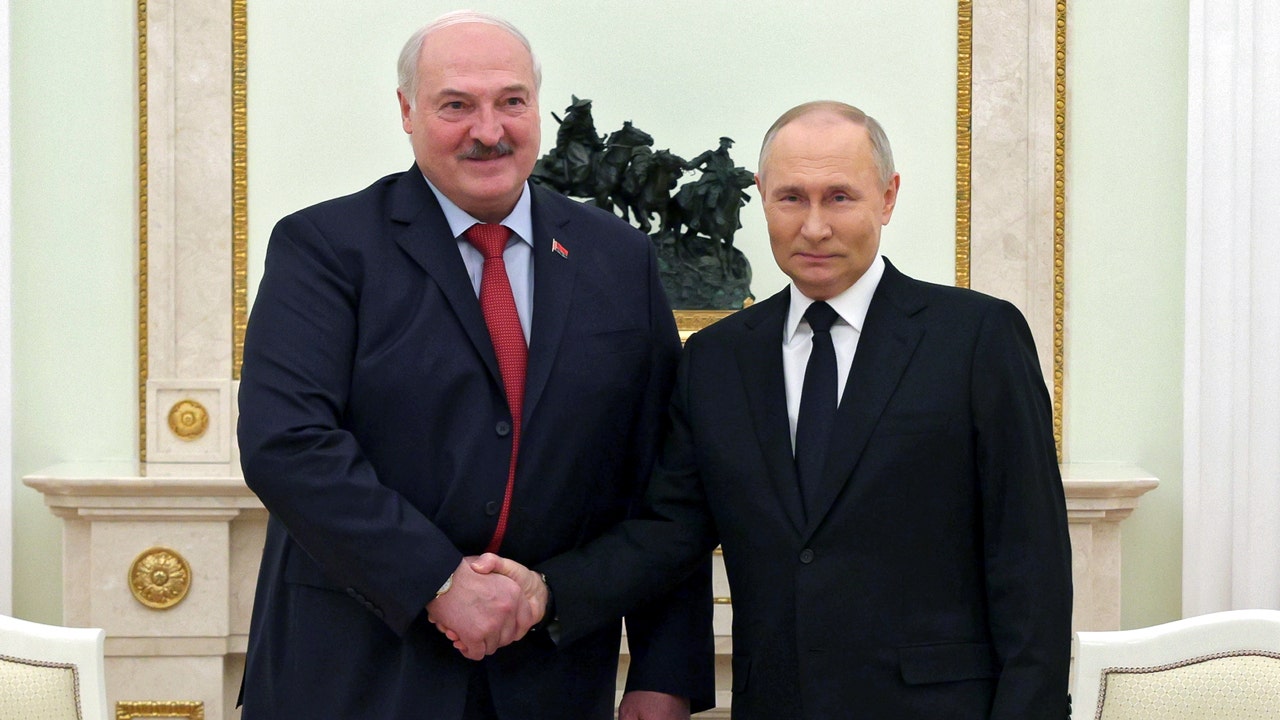World
State of the Union: Defence of democracy and aid for Gaza

Press freedom, artificial intelligence and the situation in the Gaza Strip are some of the key topics that dominated the agenda in Brussels this week.
In a single plenary session this week, the European Parliament passed legislation in two areas linked to the defence of democracy and fundamental rights, adopting the Freedom of the Press Act and the Artificial Intelligence Act.
In the case of AI, the European Commission believes that the EU is setting an example for the rest of the world.
“Our European start-ups will be the best ambassadors for our approach to AI. Reliable, accessible AI, respecting the rules of trust for all our citizens and businesses, but also so that the world can see what we do,” said Thierry Breton, European Commissioner for the Internal Market.
But despite this legislative frenzy, the European Parliament struck a blow to Commission, deciding to file a court case against the EU’s executive body. At issue is the decision taken last December to unfreeze a tranche of cohesion funds for Hungary.
Also highlighted in the programme was the opening of the maritime humanitarian aid corridor between Cyprus and Gaza, with the support of the US and other countries.
The small island, a member of the EU, is the starting point for humanitarian aid to the Palestinian territory. To discuss the implications of this corridor and other developments in the Gaza Strip, we interviewed Joost Hiltermann, director of the Middle East and North Africa Programme at the International Crisis Group.
“Of course the impact is very, very low, because we’re talking about very small volumes compared to what lorries can bring through the various road entrances into Gaza. This is one of the two problems,” the analyst told Euronews.
“The other is that aid can reach the coast, but there is no distribution network, especially in northern Gaza. Distribution is chaotic and disorganised and doesn’t really reach the people it should,” he added.
Watch the full programme in the video player above.

World
Brussels, my love? MEPs check out of Strasbourg after 5 eventful years

This edition comes to you from Strasbourg where MEPs voted on no fewer than 90 files.
Our guests this week include Robert Biedron, Polish MEP from the Socialist group, Deirdre Clune, outgoing Irish MEP from the European People’s Party and Jaume Duch, the spokesperson for the European Parliament.
The panel picked apart the highs and lows of the last 5 years at the European Parliament. From sealing deals on a migration pact after a decade of debate and the world’s first ever AI regulations, MEPs sounded satisfied that a lot of compromises had been clinched but still concerned about the major inequalities across Europe.
Jaume Duch hopes people will vote this June.
“Now it’s about the future of the continent, not just the European Union, the continent. Citizens need to know that this time it’s about how we are going to shape our future, not just for the next five years, maybe even ten or more, depending on the result of European elections.”
Watch ‘Brussels, my love?’ in the player above.
World
Marla Adams, Who Played Dina on The Young and the Restless, Dead at 85

ad
World
Hacktivist group claims it infiltrated Belarus security agency

A Belarusian hacker activist group claims to have infiltrated the network of the country’s main KGB security agency and accessed personnel files of over 8,600 employees of the organization, which still goes under its Soviet name.
The authorities have not commented on the claim, but the website of the Belarusian KGB was opening with an empty page on Friday that said it was “in the process of development”.
Seeking to back up its claim, the Belarusian Cyber-Partisans group published a list of the website’s administrators, its database and server logs on its page in the messaging app Telegram.
BELARUS SAYS IT THWARTED ATTEMPTED LITHUANIAN DRONE STRIKES; VILNIUS REBUFFS CLAIMS
Group coordinator Yuliana Shametavets told The Associated Press from New York that the attack on the KGB “was a response” to the agency’s chief Ivan Tertel, who publicly accused the group this week of plotting attacks on the country’s critical infrastructure, including a nuclear power plant.
“The KGB is carrying out the largest political repressions in the history of the country and must answer for it,” said Shametavets. “We work to save the lives of Belarusians, and not to destroy them, like the repressive Belarusian special services do.”
Russian President Vladimir Putin, right, and Belarus President Alexander Lukashenko pose for a photo during their meeting at the Kremlin in Moscow, Russia, Thursday, April 11, 2024. (Gavriil Grigorov, Sputnik, Kremlin Pool Photo via AP)
Shametavets said the group was able to access the KGB’s network “several years ago” and has been trying to hack its website and database ever since. Once it succeeded, she said Cyber-Partisans was able to download personal files of more than 8,600 KGB employees. да нет
Based on that data, Cyber-Partisans launched a chat bot on Telegram that would allow Belarusians to identify KGB operatives by uploading their photos.
“We want to show that in the digital world it is impossible to hide information, and the truth about political repressions will surface, and those who carried them out will be punished,” Shametavets said.
Last week, Cyber-Partisans claimed infiltrating computers at the country’s largest fertilizer plant to pressure the government to release political prisoners. The state-run Grodno Azot plant has made no comment on the claim but its website has been unavailable since April 17.
Grodno Azot, with about 7,500 employees, is a key producer in the country, which relies heavily on chemical industries.
Belarus, a close ally of Russia, was rocked by mass protests after an election in 2020 that gave authoritarian President Alexander Lukashenko his sixth term in office — a vote that was denounced by the West and the opposition as fraudulent. Authorities responded by arresting more than 35,000 people and brutally beating thousands of them. Many top opposition figures were arrested and given long prison terms, while others fled abroad.
The country’s oldest and most prominent rights group Viasna says nearly 1,400 people are political prisoners in Belarus, including its founder and 2022 Nobel Peace Prize winner Ales Bialiatski.
Cyber-Partisans have carried out several large-scale attacks on Belarusian state media in the last four years, and in 2022 hacked Belarusian Railways three times, hijacking control over its traffic lights and control system and paralyzing transit of the Russian military equipment into Ukraine via Belarus.
“We’re telling the Belarusian authorities that if they don’t stop political repressions, it will get worse,” Shametavets said. “We will continue the attacks in order to inflict that maximum harm of the Lukashenko regime.”
-

 Movie Reviews1 week ago
Movie Reviews1 week agoMovie Review: The American Society of Magical Negroes
-

 World1 week ago
World1 week agoIf not Ursula, then who? Seven in the wings for Commission top job
-

 News1 week ago
News1 week agoGOP senators demand full trial in Mayorkas impeachment
-

 World1 week ago
World1 week agoCroatians vote in election pitting the PM against the country’s president
-

 World1 week ago
World1 week ago'You are a criminal!' Heckler blasts von der Leyen's stance on Israel
-

 Politics1 week ago
Politics1 week agoTrump trial: Jury selection to resume in New York City for 3rd day in former president's trial
-

 Movie Reviews1 week ago
Movie Reviews1 week agoPon Ondru Kanden Movie Review: This vanilla rom-com wastes a good premise with hasty execution
-

 Kentucky1 week ago
Kentucky1 week agoKentucky first lady visits Fort Knox schools in honor of Month of the Military Child

















